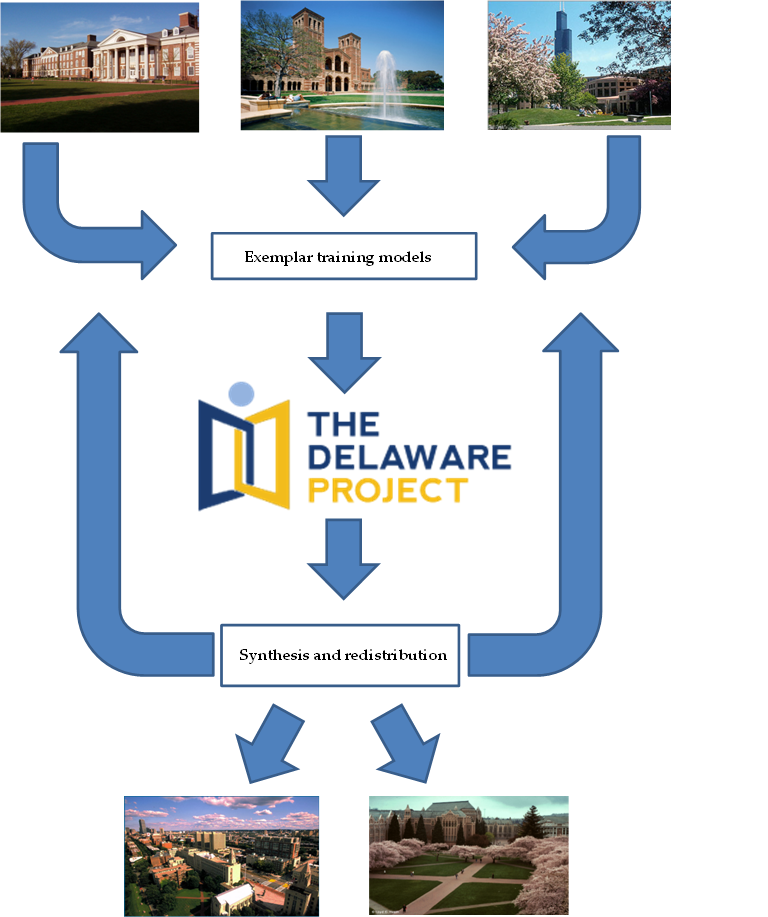The Delaware Project on Clinical Science Training:
From Intervention Development to Implementation
Aims
The Delaware Project aims to redefine psychological clinical science training in ways that emphasize continuity across a spectrum of research activities concerned with (a) basic mechanisms of psychopathology and behavior change, (b) intervention generation and refinement, (c) intervention efficacy and effectiveness, and (d) implementation and dissemination. As a first step, the Project brought together clinical scientists representing different sectors of this spectrum in hopes of creating productive (even visionary) dialogue leading to the articulation of new, improved models for training (see meeting). The current step involves publishing recommendations and best practices for training graduate students, interns, and post-doctoral fellows across all stages of intervention development science, with this website leading the way. The Project also serves as a catalyst for generating web-based training resources and stimulating ideas for cross-program demonstration projects and practice-research training networks see Request for Contribution, RFC.
Why Redefine Clinical Science Training?
Despite drastic changes in the nature of clinical practice and clinical science research over the past half century, the Boulder model promulgated in 1949 remains the dominant paradigm for mainstream clinical psychology training programs. At the same time, despite impressive advances in developing empirically supported interventions for specific problems and mental disorders, these treatments too often do not reach the patients in community settings who need them most. Increasingly, faculty in clinical science programs recognize that our students – the next generation of clinical scientists – do not receive optimal training for the leadership roles many of them will assume in developing and implementing new treatment and prevention interventions, testing interventions in real-world settings, or managing supervisory and training activities in an ever evolving healthcare system.
In contrast to the aims of the Boulder conference, the Delaware Project’s aims are aspirational and inspirational rather than regulatory and prescriptive. The goal is not to define a singular model of clinical science training nor in any way restrict (e.g., via checklists, mandatory competencies, etc.) how programs should approach their training goals. Instead, we envision the Project generating state-of-the-art (and state-of- the-science) training resources and recommendations relevant to knowledge generation across all stages of intervention development. This does not obviate the need for accrediting clinical training in the context of strong clinical science programs – while allowing programs to free up curriculum hours and training resources in the service of better intervention science.
The emerging products of the meeting are represented in this website as a source that is open to all – for submission as well as adoption. We are hoping for long-term products that may include cross-program demonstration projects and practice-research training networks.

